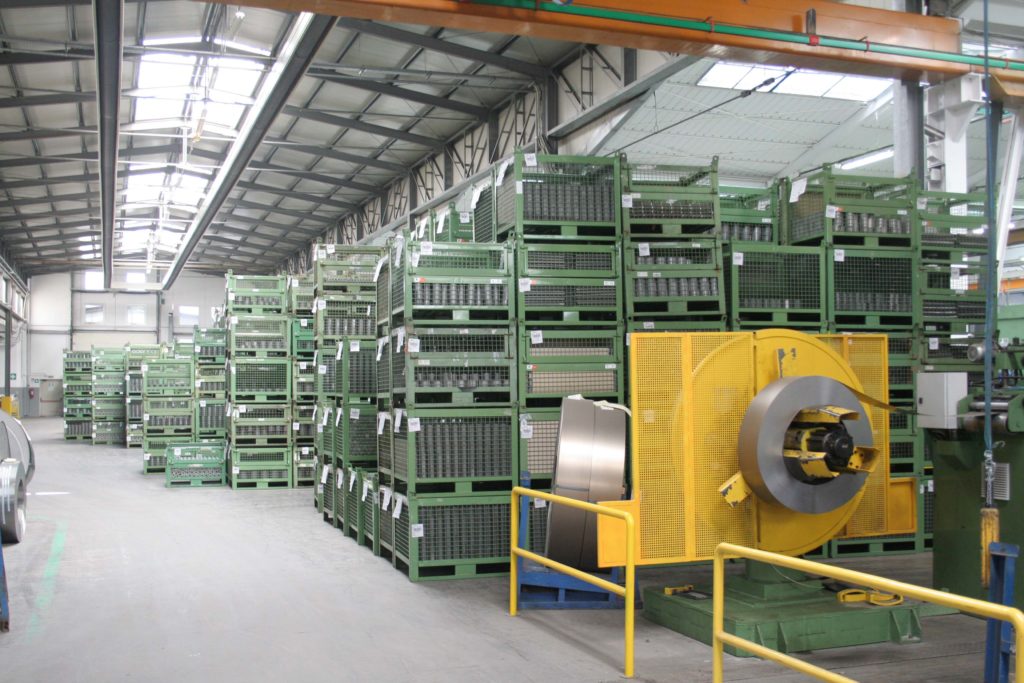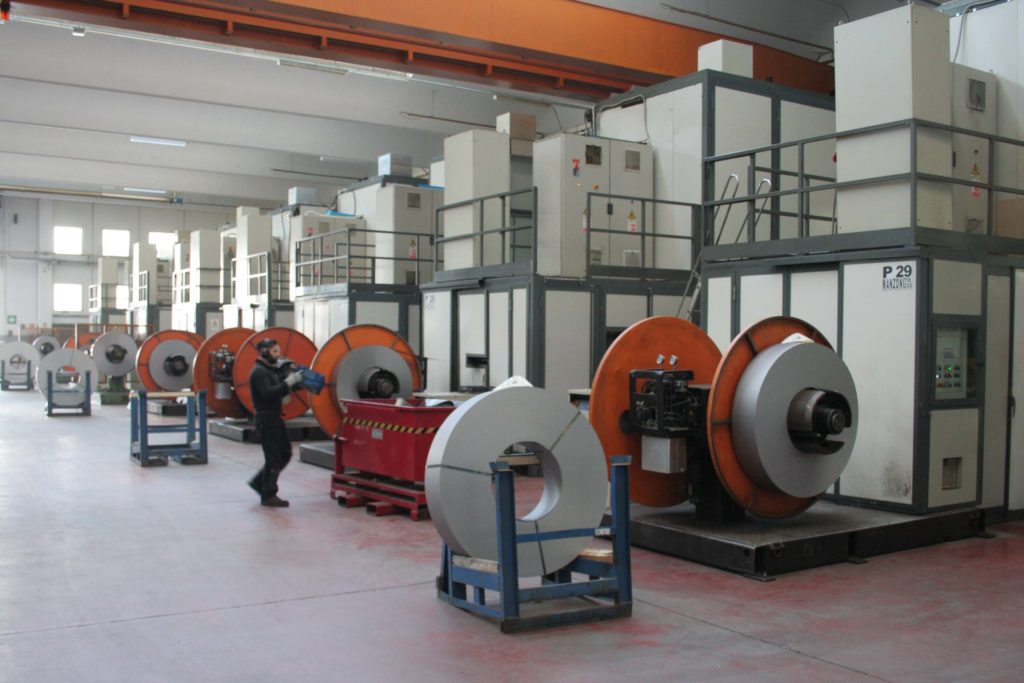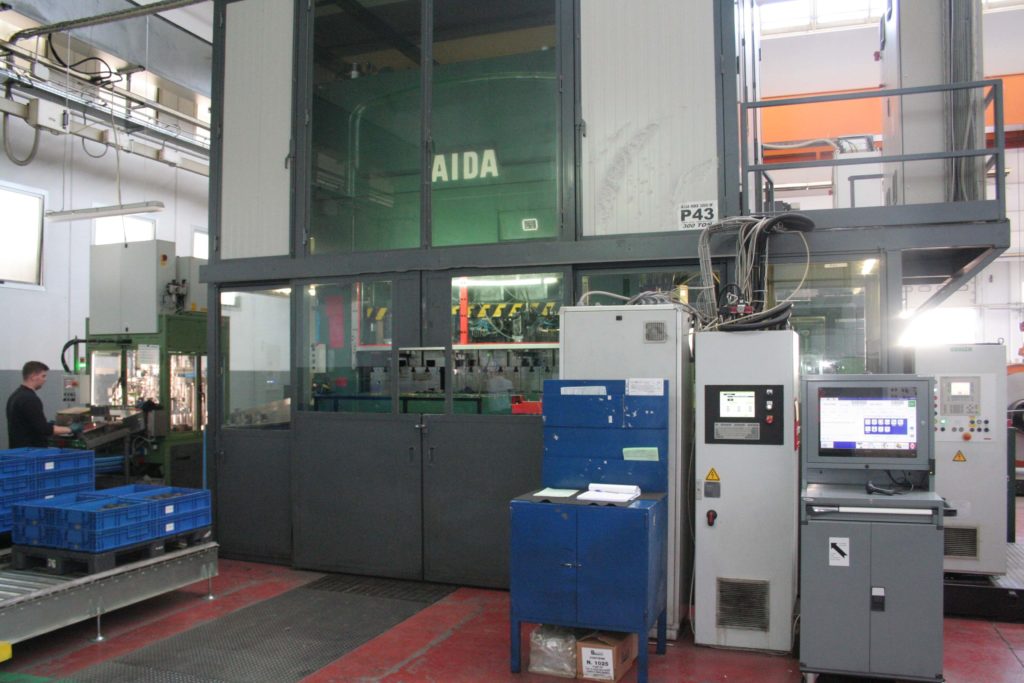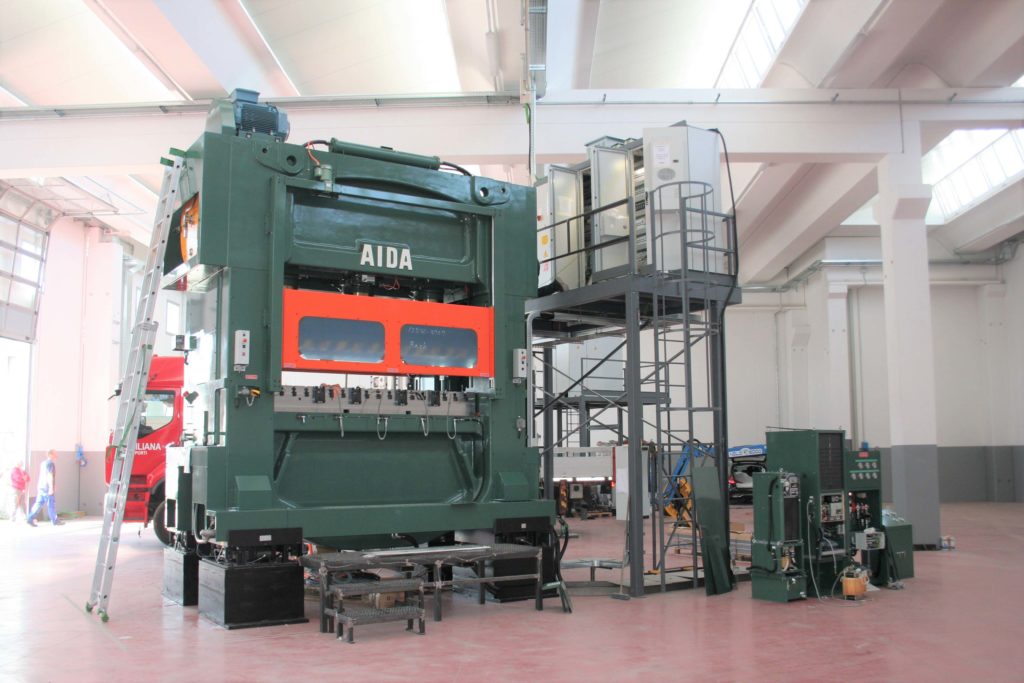Specialized since the foundation, in 1955, in the production of laminations for motors and transformers, Trancerie Emiliane, owned by Felisa family, are unavoidably interested in the e-mobility theme.
At the beginning, it was the sound, and precisely the unmistakable one by Beatles. On tour in Italy in the early Sixties, the four from Liverpool clearly needed all possible stage equipment, starting with amplifiers. They were supplied by Davoli’s made in Italy, whose resonance boxes were echoed by the transformers by a small Parma company. We are speaking of Trancerie Emiliane that few years before had stemmed from the entrepreneurship of Pietro Felisa, founder driven by ingeniousness and the will of leaving war miseries behind. Since then, Felisa workshop has developed up to gaining the sizes and the renown as big international manufacturer of laminations for transformers and electric motors, entering the world of induced activities of leader global brands in automotive and not only. Today it relies on a subsidiary in Slovak territory and 350-400 workers in all, with a turnover of 150 millions. The time seems propitious for further great strides, due to the clamour aroused by the race to e-mobility.

The managing director Franco Felisa strongly believes that the electrification of light transports, or at least their strong hybridization, represents the (sustainable) future of mobility and perhaps of even human kind, even if he is aware that the road to be travelled is still long and will reserve new surprises.
«E-cars and hybrid», he told Electric Motor Engineering, «are the vehicles of the future but I do not think that their definitive success, that is to say the complete replacement of thermal engines with electric motors, can be implemented in the short term.
Let us just consider the infrastructural deficiencies from which we suffer, for instance, in terms of energy production and distribution capacity.

The game and the candle
In spite of that, the investments by big brands and by some representatives of their induced activities do not seem to leave any doubt: they are constantly growing.
The numbers at stake are attractive even if, currently, the planned output is in most cases equal to less than one tenth of means of transport produced in the world in one year.
While vendors generally compete on the distance covered and the mileage of their cars, their supply chain, to which also Parma brand refers, copes with fully different matters, like the development of the production of new components that imply the implementation of equipment to be used in brand-new forefront manufacturing lines.
«Another fundamental step for the success of the electric mobility», commented Franco Felisa, «is represented by the development of batteries, and the issue is not exclusively of commercial or technological character.
The automotive industry is working hard to establish long-term agreements with the owners of lithium mines to be sure it will be supplied with the precious mineral.
A shock of realism
In the opinion of Franco Felisa, batteries must be recharged in the lapse of few minutes and the recharge must be sufficient for hundreds of kilometres to allow zero-impact four-wheels to keep their promises and to meet market requirements.
Nowadays, unfortunately this technology is not available, yet, and, in fact, it needs too much time for a complete recharge, with which it is not possible to travel long distances, yet, and anyway at low average speed.
To succeed in the aim of giving more autonomy and higher average speed to vehicles, manufacturers must strive to produce less energy-eating electric motors.
One of the feasible ways is certainly the reduction of sheet metal thicknesses.
Instead of the common 0.5 mm thickness used for standard electric motors, already today automotive uses thicknesses from 0.35mm to 0.27mm, but some automotive companies report and produce prototypes with sheet metal thickness of 0.19 mm.
This requirement urges the entire chain to an epochal change in the implementation, for instance, of the necessary steels, as well as of apt equipment and machines for blanking the laminations for the production of electric motors.

In my opinion, this is the approximate situation we are likely to face for the whole current year.
From 2020 to 2021, the numbers of electric vehicles introduced by companies into their ranges will be much broader.
Certainly, we cannot get off the running train of the e-mobility and Trancerie Emiliane are ready for racing and for satisfying its customers’ demands and needs.
Zero tolerance
In comparison with past years, before the 2008-crisis, certainly the whole market scenario has radically changed, for instance with delivery terms dropped from some months in the past to the present few weeks, as well as quality, irredeemably shifted to zero PPM. Despite criticalities, Felisa irremissibly considers automotive as the core of his company’s next initiatives and he is certain the future coincides with the diffusion of the e-car.

4.0 blanking
«We have clear ideas about what we would like to do», he anticipated, «but in a scenario of such a difficult interpretation caution is mandatory.
We imagine a robotic “next” factory, with electric trains that will handle goods in absolute autonomy, and fully automated warehouses, too, without anyway ever forgetting the human factor that is, and must remain, the focus of each of our thoughts or actions. On the other hand, employees’ competences and their way of working are expected to live an epochal change. Besides machines, workers are and will be called to increasingly use forefront consoles of collection and transfer of data concerning single job orders and all that can be used to fulfil them.

The AIDA MSP allows producing high precision and high-efficiency motors such as EV motors, HEV motors and energy-efficient home appliances motors. AIDA MSP presses are characterized by a remarkable dynamic precision due to both the compact design and the multiple suspension points architecture in line, to the native AIM function (Adjust In Motion) and to the balance reached between the high rigidity and the large surface of bed area. AIDA MSP presses guarantee unsurpassed accuracy and the longest die life thanks to the lowest deflection characteristics. Moreover, all areas that transmit the press the forming loads, such as the connecting rod bearings and the crankshaft bearings, are made from special metals selected to avoid heat deformations. Ideal for production of parts featuring thicknesses under 0.2 mm Multiple suspension points Oil temperature control unit Caliper type clutch and brake Highly rigid frame Highly rigid guidepost Adjust In Motion function (AIM)

We imagine the next job as absolutely less heavy from the physical point of view but much more committing in intellectual terms.
To compete globally, we must create further flexibility and this is accomplished through studies and investments in people and machines.
Trancerie Emiliane’s programme includes the implementation of a central unit or control tower that tracks in integrated way the information about activities in course and productions, the state of the art of each machining, which can be monitored step by step from remote.
Concerning this, Trancerie Emiliane has recently bought new AIDA presses that will be interconnected with the company, actively participating in the industry 4.0 project.

